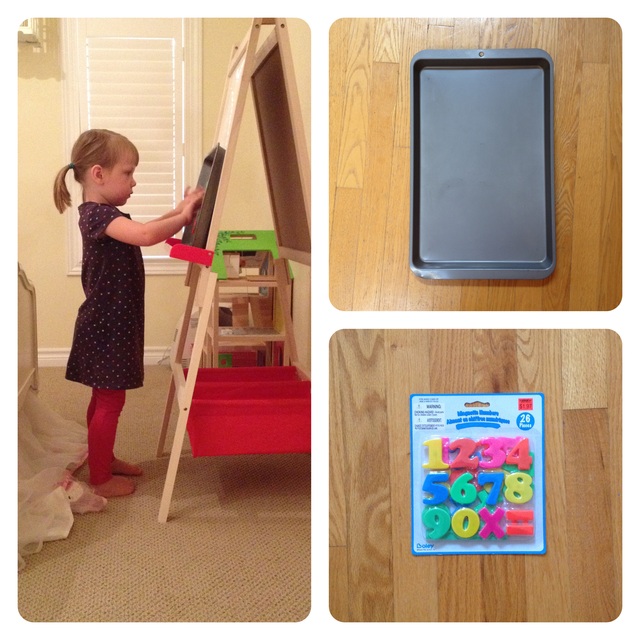September 10, 2012
8 – 16 Weeks

What happens next? Will it always be like this? Those unpredictable, fly-by-the-seat-of-your-pants first couple months? Very fortunately, no! There are some important milestones to look for that let parents and care providers know that their child is ready to become a more organized sleeper. . .
At around 6-8 weeks, you’re going to start noticing some changes in your baby. Sleep is starting to get more organized, and they’re moving away from those random days and nights. Here are some things to be on the watch for:
1) Smiles: Parents have a long couple months of thankless work. You’re on call 24-7 to ensure your little person is fed, cleaned, loved and content, leaving you depleted of energy and strength. It blows my mind that right when you need them the most, they first appear. Smiles mean your baby recognizes you and can communicate their happiness to see you. Those first smiles are beautiful and heart melting, and now you know that it’s also a sign that they’re getting more mature and so will their sleep patterns.
2) Witching Hour: You might not know what a “witching” hour is, but if you’ve been around a newborn, you’ll probably experience it if you haven’t already. As babies become more mature, they typically have an extremely difficult part of the day. That time is usually in the early evening. It’s not a pleasant time – for you or your child. There’s likely to be a lot of fussiness, and again, adopt a “whatever it takes” attitude to get through it. The silver lining is that it’s a sign of a maturing newborn, who will be ready for more organized sleep soon.
3) Organized Days/Nights: When the day and night sleep become more organized, this means that they are starting to spend more wakeful hours in the day and more time sleeping at night. This is often coupled with more eating during the day, and less feeding throughout the night.
4) Longer Sleep Periods: Often their longest sleep is at night, perhaps even 4-6 continuous hours.
So what does this all mean when we see these signs coming together in our child? We can see that our baby is ready to socialize, which means they’re ready to follow cues and make connections. Fortunately, this is a real opportunity for parents to start helping their child build a healthy foundation for sleep.
1) Consistent Place to Sleep: This is a really good time to introduce them, if you haven’t already, to their crib. Have their sleep environment be a calm, soothing place where they can relax, read stories, sing songs, have a feed. Try to reduce your use of “sleep props’ – like car rides, bouncy seats, strolling, swings, soothers, nursing, etc… Remember that a long term goal of a competent sleeper is to have your child sleep comfortably in their crib. You’re setting them up for success by introducing it early. The American Association of Pediatrics recommends room-sharing up to 1 year. Canadian Pediatric Society and the National Health Service in the UK recommends room-sharing for the first 6 months (see Canada’s Caring for Kids and the UK’s NHS).
2) Sleepy Cues – About 45 minutes into wakeful time, you might notice your baby zoning out, rubbing their ears, rubbing their eyes, turn their head from side to side, yawning, or becoming fussy. Generally, you’re trying to see if you’re baby is starting to get tired and might possibly be beginning to put themselves to sleep. Your job is to watch for these cues, (or whatever sleepy cues your baby may display), when they are getting tired. When you do notice them, this is your opportunity to take baby to their consistent sleeping place. They might put themselves to sleep, or they might need you to go through a bit of a soothing routine….
3) Soothing Routine – If you haven’t already, start working on an ENJOYABLE and peaceful routine to follow before each sleep time. Naptime and bedtimes are likely to have a similar routine. Cuddling, nursing/feeding, stories, lullabies – anything you and your child find relaxing. You might not be able to complete the routine if your child is obviously ready to go down for a sleep, so don’t feel obligated to go through the whole thing. Keep in mind, that your routine is something you’re likely to adapt and evolve as your child becomes older, but it should be a pleasant time for both of you. Visit this post for more soothing routine inspiration.
We don’t have any strict rules at this age, and there’s still not a lot of structure from day to day. This age is a phase for parents to be respectful of their baby’s high sleep needs, to practice identifying sleepy cues and develop their soothing routine. Optimizing conditions for sleep in the early stages can set your child up for successful sleep habits as they become older.
 I always check on my kids before I go to bed at night. I like to know they’re safe and comfortable. There’s something about a sleeping child that makes me swoon a little. And I know I won’t always be able to do this. I know that someday, she’ll be all grown up. She’ll be 18, and might say stuff like
I always check on my kids before I go to bed at night. I like to know they’re safe and comfortable. There’s something about a sleeping child that makes me swoon a little. And I know I won’t always be able to do this. I know that someday, she’ll be all grown up. She’ll be 18, and might say stuff like


